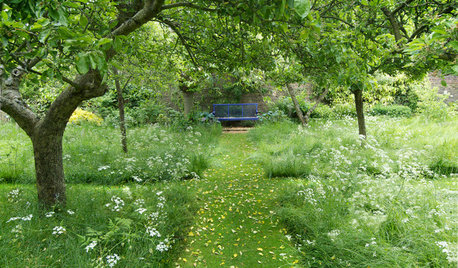Are Lawn Treatments Safe?
lisalj
13 years ago
Featured Answer
Sort by:Oldest
Comments (21)
tiemco
13 years agoBilll
13 years agoRelated Professionals
Maple Valley Landscape Architects & Landscape Designers · Panama City Landscape Architects & Landscape Designers · Wareham Landscape Architects & Landscape Designers · Edmond Landscape Contractors · Williamsburg Landscape Contractors · Beachwood Landscape Contractors · Columbine Landscape Contractors · La Verne Landscape Contractors · Lake Saint Louis Landscape Contractors · Melrose Park Landscape Contractors · North Haven Landscape Contractors · North Highlands Landscape Contractors · Old Saybrook Landscape Contractors · South Hackensack Landscape Contractors · South Riding Swimming Pool Builderslisalj
13 years agojohnb352
13 years agolisalj
13 years agochesapeakebeach
13 years agolisalj
13 years agotiemco
13 years agouncle_al_tkp
13 years agodwrecktor
13 years agoanitamo
13 years agodoze
13 years agoneilaz
13 years agolisalj
13 years agopeterk312
10 years agopeterk312
10 years agoHamsterHuey
10 years agogrb06067
9 years agomorpheuspa (6B/7A, E. PA)
9 years agogardengal48 (PNW Z8/9)
9 years ago
Related Stories

GARDENING GUIDESCreate a Fire-Safe Garden — With Style
Defend your home against wildfire with a well-planned mix of plants, materials and open space
Full Story
LANDSCAPE DESIGN15 Great Ideas for a Lawn-Free Yard
End the turf war for good with hardscaping, native grasses and ground covers that save water and are easier to maintain
Full Story
EARTH DAYThe Case for Losing the Traditional Lawn
Work less, help the environment and foster connections by just saying no to typical turf
Full Story
GROUND COVERSGive Your Lawn a Taste of the Wild
Consider the joys of an irregularly trimmed meadow lawn: It’s ecofriendly, visually interesting and still good for romping
Full Story
GARDENING GUIDESHow to Switch to an Organic Landscape Plan
Ditch the chemicals for a naturally beautiful lawn and garden, using living fertilizers and other nontoxic treatments
Full Story
PETSThe Crate Conundrum: A Safe Place for Your Pooch
Get ideas for a comfy den for your dog that works well with your space too
Full Story
DECORATING GUIDES8 Tips for Creating a Safe and Cozy Nursery
Learn how to design a room that will grow up with your baby and also will be comfortable for you
Full Story
LIFE10 Ways to Keep Your Home Safe While You're Traveling
Set off on your trip with peace of mind, knowing you've taken the right steps toward keeping your home secure
Full Story
GARDENING AND LANDSCAPINGTake a Winter Walk on the Safe Side
Learn how to handle snow, ice and other cold-weather landscape factors to minimize falls and damage
Full Story
BEFORE AND AFTERSSee 6 Yards Transformed by Losing Their Lawns
Wondering whether a turf lawn is the best use of your outdoor space? These homeowners did, and they found creative alternatives
Full StorySponsored
Central Ohio's Trusted Home Remodeler Specializing in Kitchens & Baths
More Discussions







uncle_al_tkp